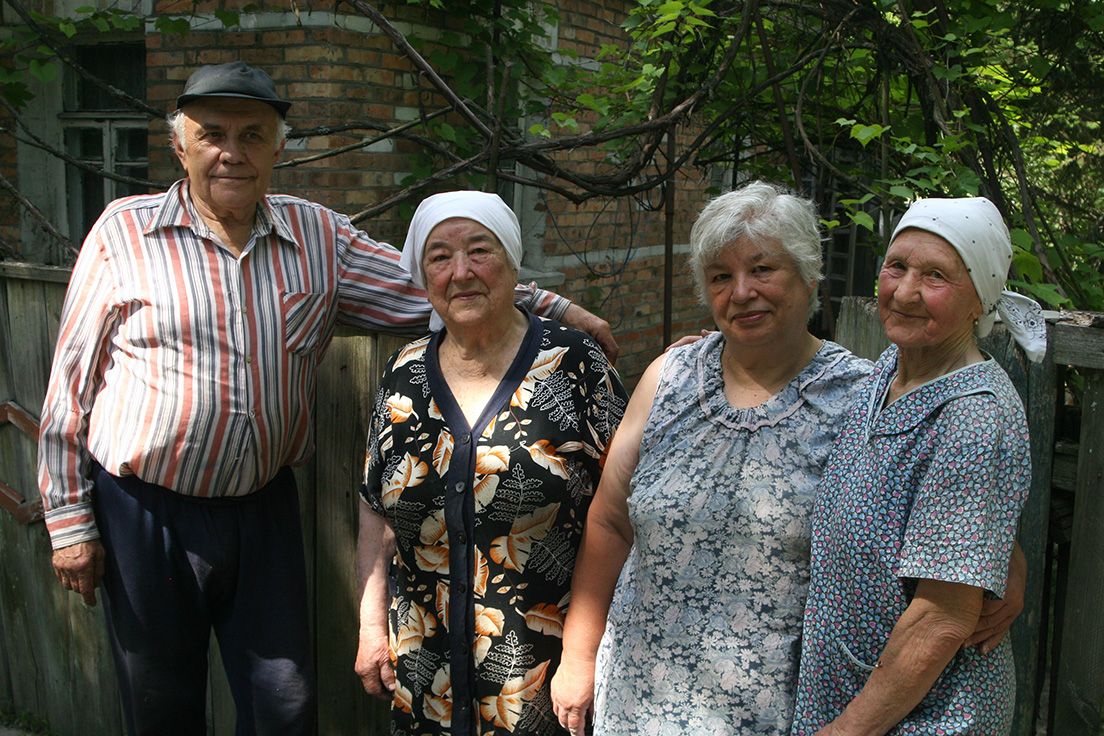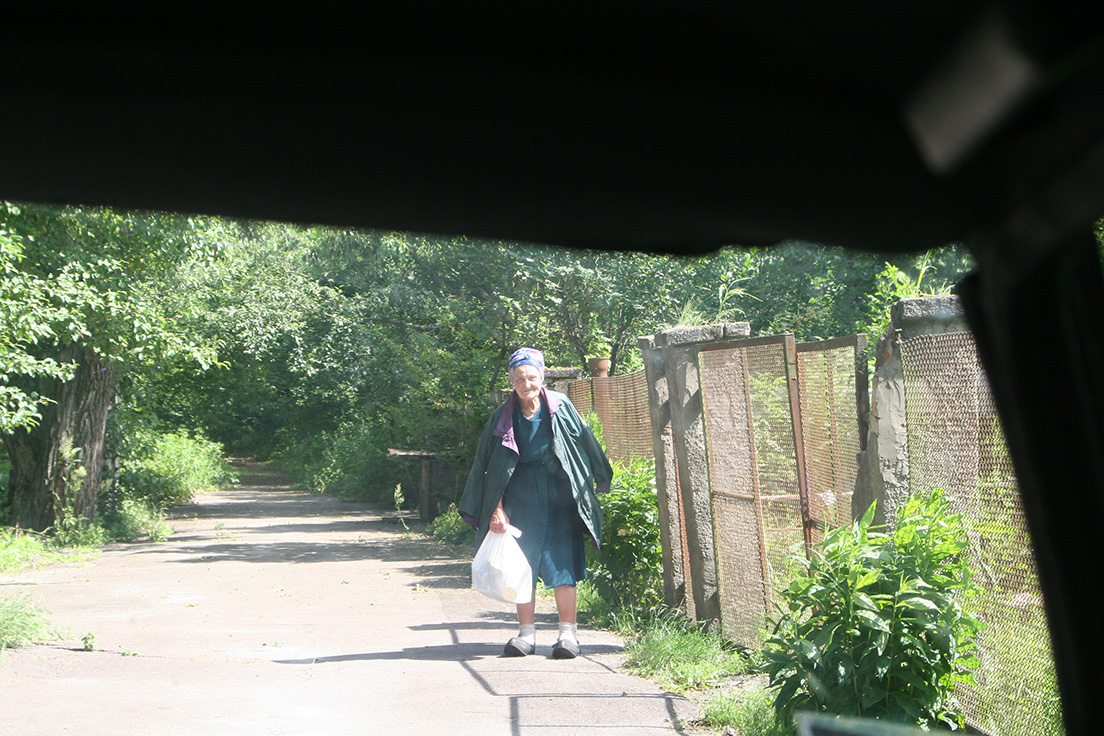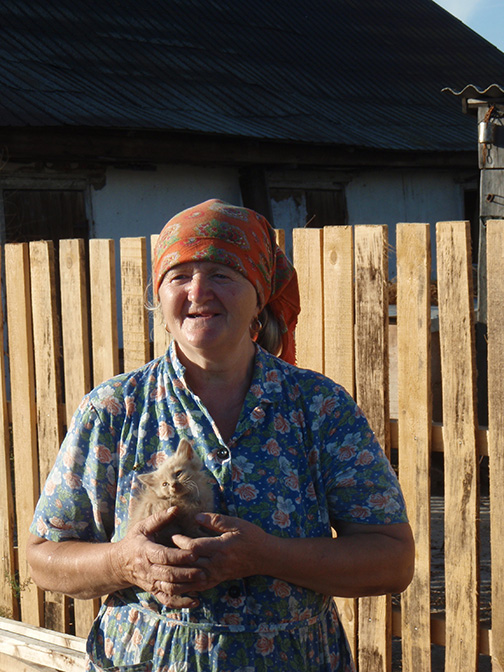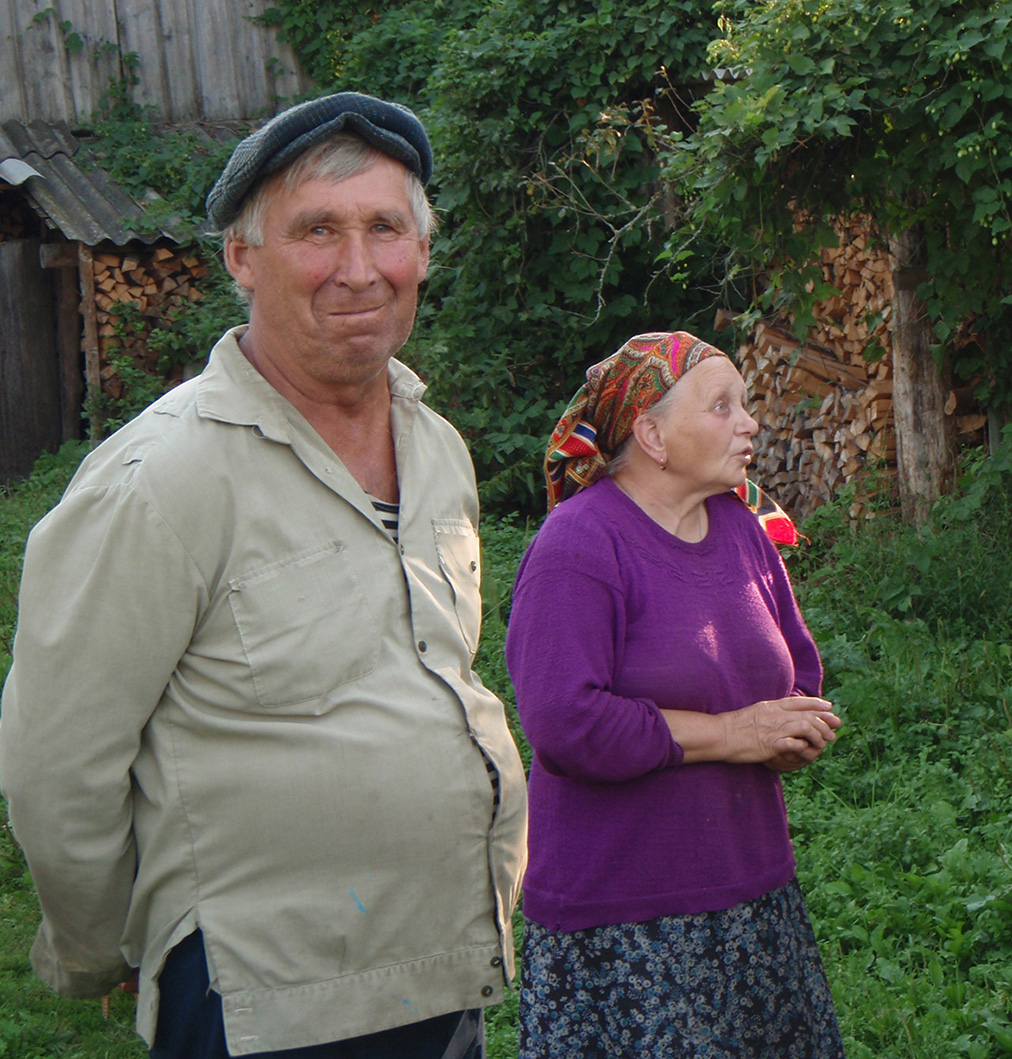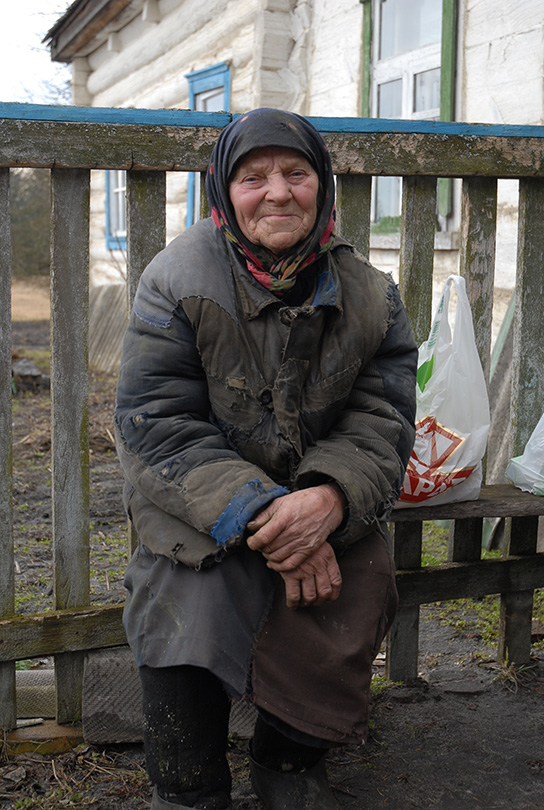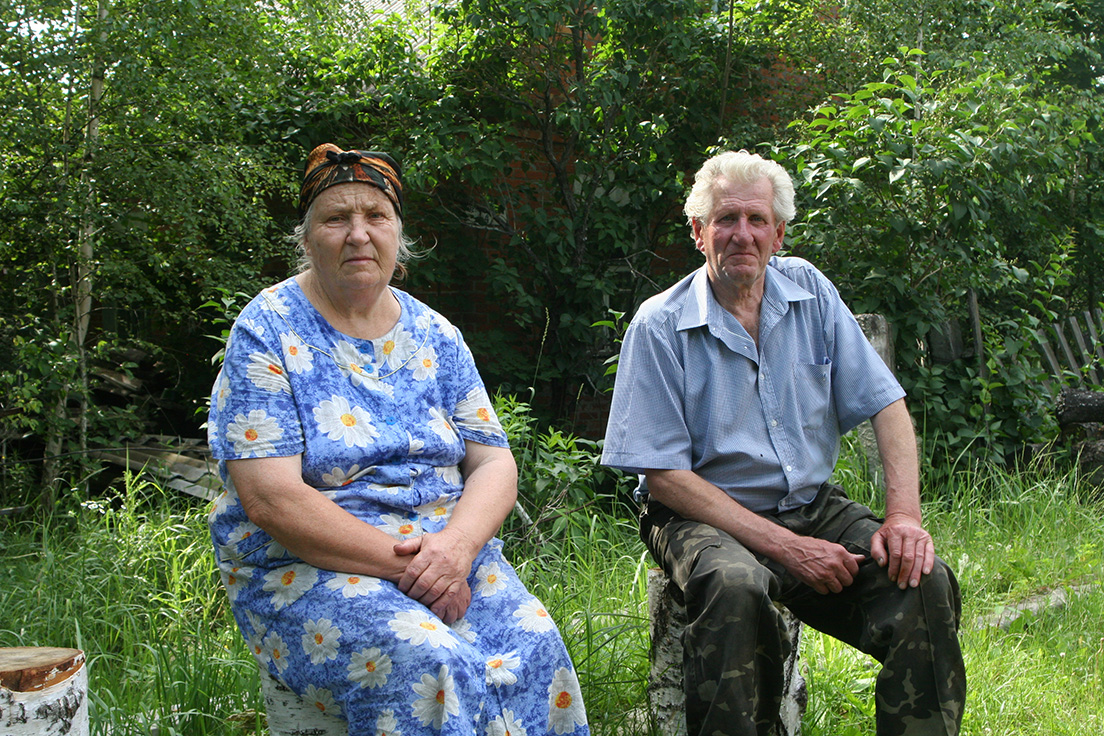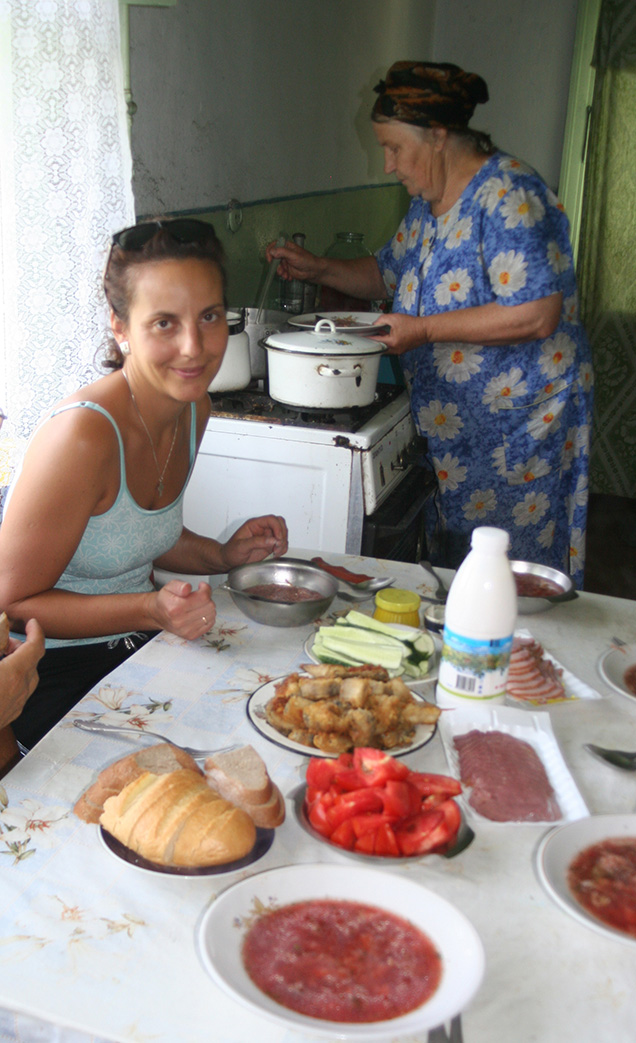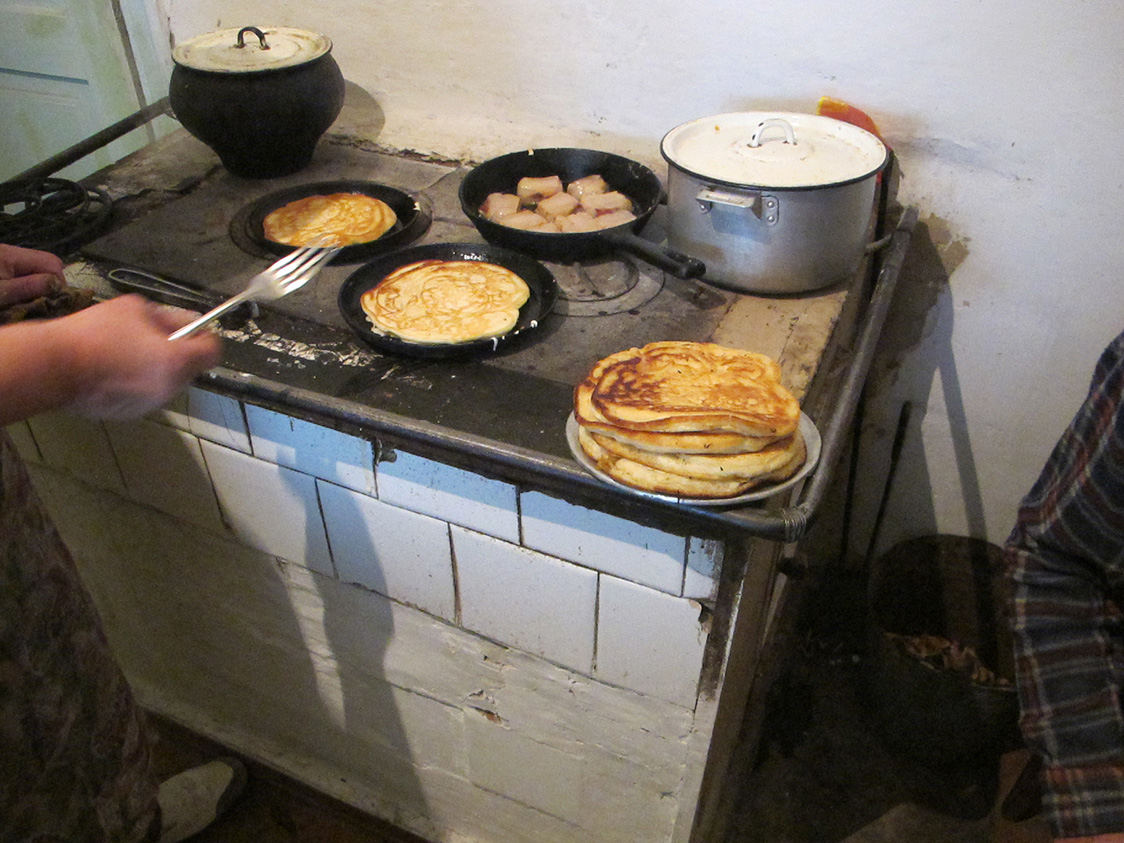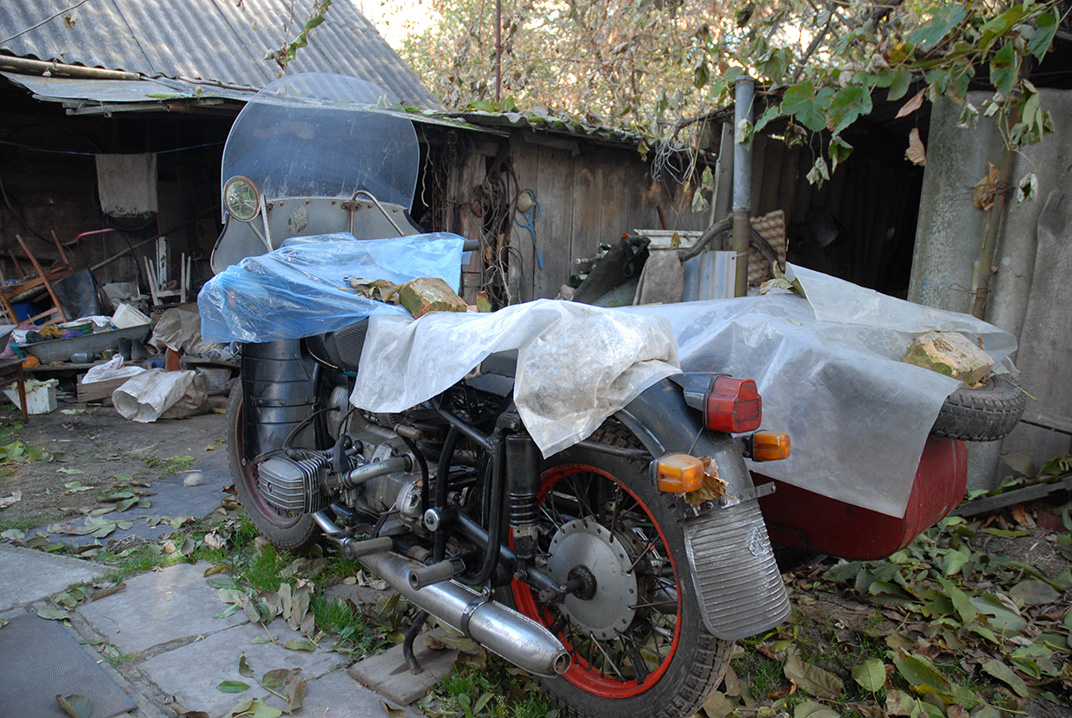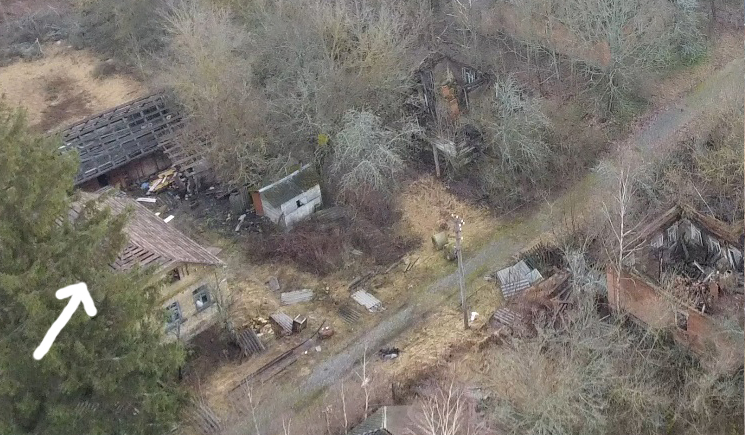Last People
In this world, it is only natural that people are born and people die. We all know it, even if we do not like it. It goes like a hotel where guests check in, and guests check out. But Chernobyl is different than any other place I've ever seen. In all my trips there, I've never seen anyone checking in: I've only seen them checking out. And this death conveyor moves very fast. Some 15 to 20 years ago I knew many people who lived near Chernobyl, and others who worked there as guards, guides, officials. Now - of all those contacts - only one man remains. It has been like seeing a death machine at work.

Babushkas in some village in Belarus.
With some of my photos from the 1990s I could not previously publish them without permission of the people in them. Sadly, now almost everyone you see in these photos is gone, so permission is no longer an issue.
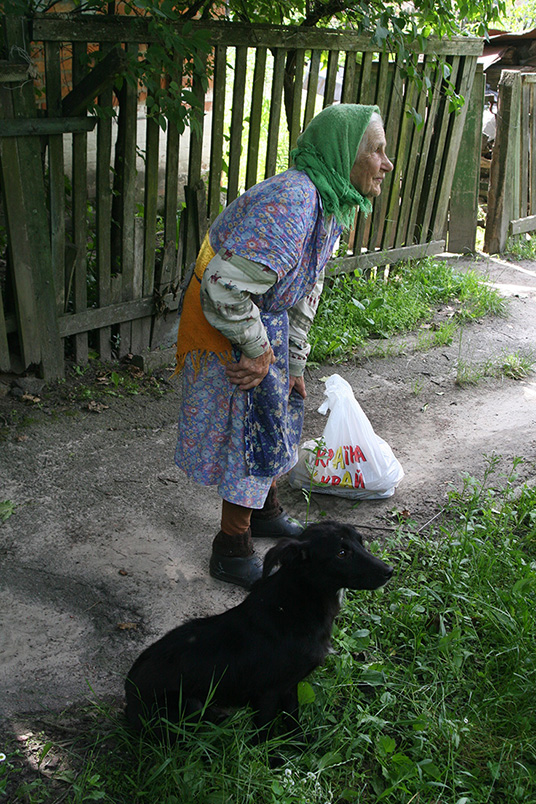
People seldom live separately near Chernobyl. Usually, two or three households of neighbors band together. This old woman said the neighbors, she lived with had a drinking problem, but she added that it is better to have drunks for neighbors than no neighbors at all.
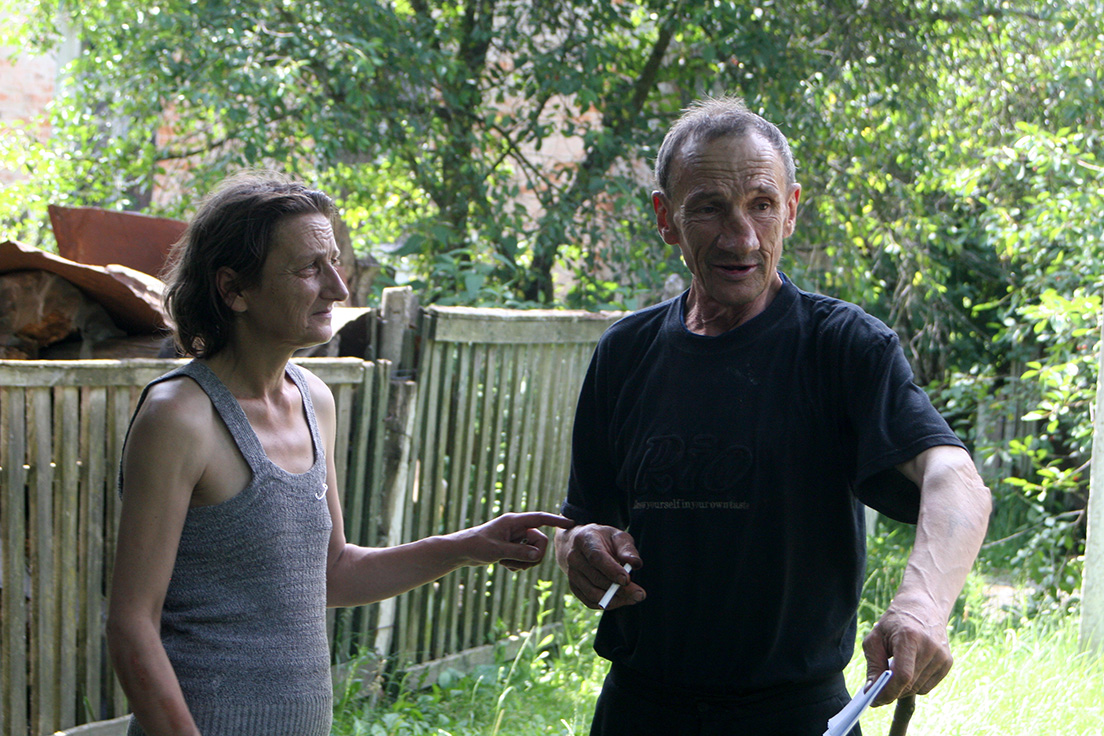
This is her neighbours. This woman's name was Tamara. She was a highly cultured and educated person. A woman can drink away her beauty, but not her upbringing. It was difficult for Tamara to leave the town where her father was somebody. She stayed with her partner until the end of their lives, and they were scrapping metal from her birth town and trading it for vodka. What a downfall to be scrapping metal from the town her father built!
On my trips to Chernobyl I am often struck that many buildings become more interesting when they stand in ruins. The same is true with some people. Tamara was an interesting ruin of human. In this matter the piquant paradox holds true that the half is more than the whole.
A few households can keep together for quite awhile, but when sorrows come, they come not as single attacks, but in battalions... people go one after another, like these three women. They all perished within one year. The man still lives alone in some ghost town.
I often see those people as the ones who missed last train and now have to stay on railway platform forever.
I found most of those folks on my motorcycle trips. I followed electric wires which led to their houses. Later they told me they had to fix those wires on their own. The government never helped them with anything. Doctors never came to see them. If relatives wanted to come to visit them, they often had problems getting through checkpoints. Seeing all this idiocy, I decided to give support to those people. I succeeded in collecting some funds to bring them food and the things they needed most. I couldn't get official permission to do this in a normal way, so I had to travel illegally to bring them stuff. I was doing this for 5 years. I was hiding in the bushes like a criminal while the smugglers of radioactive wood and metal were waved through checkpoints. Their trucks were often escorted by police. 18 century author Chamfort wrote once- "in France it is customary to leave the arsonists alone, but to prosecute those who ring the alarm." In Chernobyl it is not just customary, it is fixed rule to do so. It is because the arsonist and the prosecutor are the same body.
Those experiences made me come to realize that one of the great misfortunes of our world is that - even when we want to do something good - we have to first seek permission from those who produce only bad.
You might wonder: what keeps people in Chernobyl? From my experiences visiting them, I believe it is hope that people will return to these abandoned places. They all were waiting for better times to return. In all languages there is this saying that hope dies last. That's true. We need hope to live just like we need oxygen, but in Chernobyl even hope becomes a toxic and negative force.
Each of those people were the last ones living in their places, and none of them would have ever believed that their town would die with them. They all told me the government failed them. I personally think they were cheated by the greatest of all deceivers: hope. It was hope that enticed them to believe their government and wait for better times.
This photo is of man named Pavel and the woman is his wife name Nina. I found them in one ghost town. For many years their house was like a base for me: a place where I could sleep, eat, use shower, maintain vehicles and then continue my travels through Chernobyl. The door of their house was always open no matter how many people I would bring, or how long we would stay. Exposure to radiation, isolation, and loneliness never reduced their kindness. With years they became my extended family.
Here is a photo of me in one of those uncomfortable moments when Nina was trying to feed us with her cooking. For me there were two problems: first, I do not eat borsch; second, I especially do not want to eat borsch if it is made of radioactive vegetables grown in Chernobyl. To oblige our host, we all had to stir spoons around in the plate. Their garden was mildly contaminated with Plutonium but there was a lot of Strontium and good deal of Cesium in that borsch. Special ingredients that are present in all Chernobyl cuisine. Unfortunately Pavel and Nina's kindness meant their house was also open to scrap metal collectors, and those desperate fellows brought a good deal radiation to Pavel and Nina's yard where they were storing salvaged metal. In those days scrapping metal in Chernobyl was a big industry. Check out my daughter's video
One Flue Over Rossokha It shows how they emptied the biggest radioactive graveyard in Chernobyl.
Scrap metal guys never had geiger counters. They were drinking, sleeping and scrapping metal in the same clothes. Those who were digging junk metal out of graveyards were extremely radioactive. They had hot particles from the reactor core on their clothes and hands. If you let them borrow your phone or you car you could say goodbye to those things. Anything they touched became contaminated. The life expectancy of scrappers was the lowest in the zone. Pavel told me he didn't know anyone who was scrapping metal for longer than two years. For them punishment was included in a crime. The death machine worked in top gear with those guys. We called them the walking dead.
In this photo Nina is making pancakes. When you sit in the kitchen in the evening with tea, pancakes, and television, it feels like everything is good. Evenings were characterized by regular things like village talk, discussing repairs in the house, and always plans for next year to grow a pig and chickens... in a year or two build a new shed... they always build a life on a broad foundation in villages. It felt so cozy and good, and then you remembered it was the last house in the area and around us was a wasteland. It was an eerie feeling. Like being on a sinking ship that is 90% submerged with only the upper deck sticking for awhile longer above the water... and you sit in some pilot house listening how sailors dreaming strange dreams of vacation and talking about fixing things on that ship.. you want to tell them, wake up, guys! You are last people here. You can't have chickens. Wolves are already here. Wormwood grows from all holes. Trees are claiming this land. Branches are crawling through your windows. Life will never return in you town. Nuclear barons bury their waste here. After you, there will be only a radioactive forest here for the rest of time... then you think, what is the use? Saying these things will not change anything. Just let everyone enjoy this moment and eat pancakes while they are still hot.
This photo shows Pavel's motorcycle. On every visit I was asking when we were going start it together. Pavel used to say that he will start it next spring. This continued year after year because one thing was missing or another. In the spring of 2015 I came to visit old couple but found no one home. Nina had died, and Pavel was sent to a cancer hospital... and his motorcycle had gone to a scrap yard. We never started it together.
On photo is what became of my base. Pavel and Nina's house in winter 2018.
Click here to proceed with "Roadside Picnic" Spring 2018 photo/videorportage. 